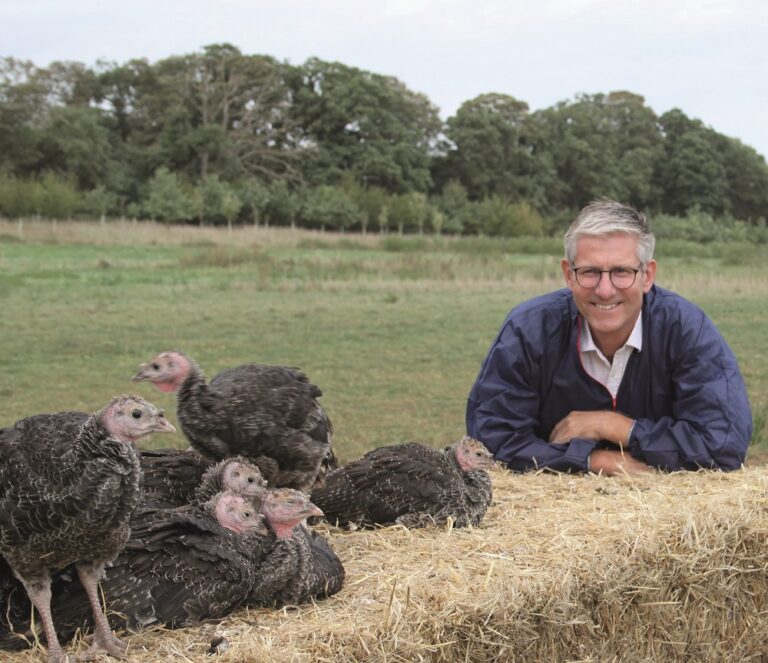By Mark Gorton, managing director, Traditional Norfolk Poultry
Christmas is the busiest time of the year for Traditional Norfolk Poultry, and through December we process hundreds of thousands of turkeys for our retail customers around the UK.
But this year came with a unique set of challenges as our processing plant in Shropham, Norfolk was smack bang in the middle of an avian influenza protection zone.
Norfolk has experienced five confirmed cases of high pathogenic AI this winter, and the county has been subject to multiple movement restrictions since 4 December. The first two cases were discovered in early December on turkey farms, and several weeks later further cases were confirmed at two duck farms and on a premises where non-poultry captive birds were being kept. All the cases resulted in the cull of the affected birds. When each case was confirmed, a 3km protection zone and a 10km surveillance zone were put in place around the infected premises to limit the risk of the disease spreading.
The timing could not have been worse for us, coming as it did right at the start of when we begin processing birds from our free-range farms across East Anglia.
But the reality has been very stressful. Not only did we have to apply for licenses each time we needed to transport birds from farms to our processing plant, but because our factory has also been in one of the zones, every movement of birds from farms into the factory has required separate paperwork and licences. Sometimes we were waiting with catching teams and lorries on standby right until the 11th hour to hear if we had got the license approved to enable us to move the birds. With the birds having been starved ready for slaughter it all becomes very difficult and very stressful, at what is already a very stressful time of year. In addition, we sometimes have to depopulate our chicken and turkey farms over several days, meaning we have needed multiple licenses for each farm we depopulated.
But the movement restrictions have also had a wider impact on our chicken business. The rules mean although we have been able to move birds into a PZ for slaughter under license, there is a blanket ban on moving birds into the zone that are going onto farms for finishing. The outbreak was in our heartland, and once we had depopulated farms we simply couldn’t fill them back up. So overnight, we lost three big growing sites. Of course, tens of thousands of birds for each of those sites were already in the system and we had nowhere to put them. It was a huge logistical challenge.
We had two choices. We could either cull chickens on the farm, or we could find a workaround. It wasn’t ideal, but we decided to make some last-minute modifications to our turkey farms outside the affected zones that had recently been emptied.
Chickens have different needs to turkeys, but we were able to make it work, partly because our chickens – which include the Norfolk Black- are very hardy and robust. We had to install new drinker systems and new feeder systems. It has cost tens of thousands of pounds. It was expensive but I felt we had no choice as the last thing I would ever do is cull the birds on the farm.
It was only in late January, when the PZs were merged with the SZs we were able to start opening them up. So, we lost a whole cycle of growing on those farms. There is no compensation, there is no insurance, and you can feel like you are on your own.
Defra and APHA have been helpful and I can’t fault them. And we have also received plenty of help and advice from the Assurance Schemes we belong to, and I’d like to say thank you to those at Red Tractor and RSPCA Freedom Foods who pulled the stops out and helped us through this difficult situation.


